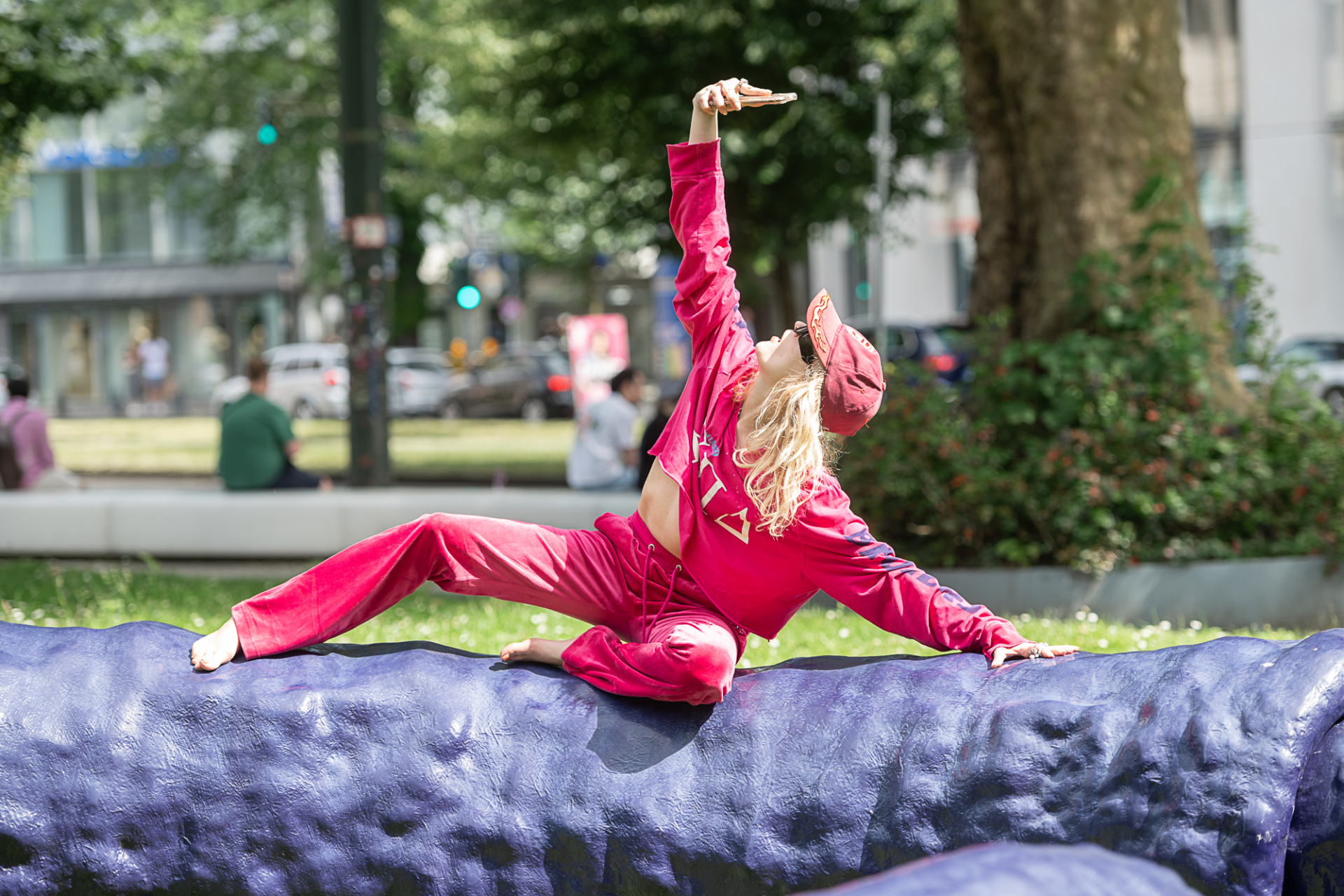
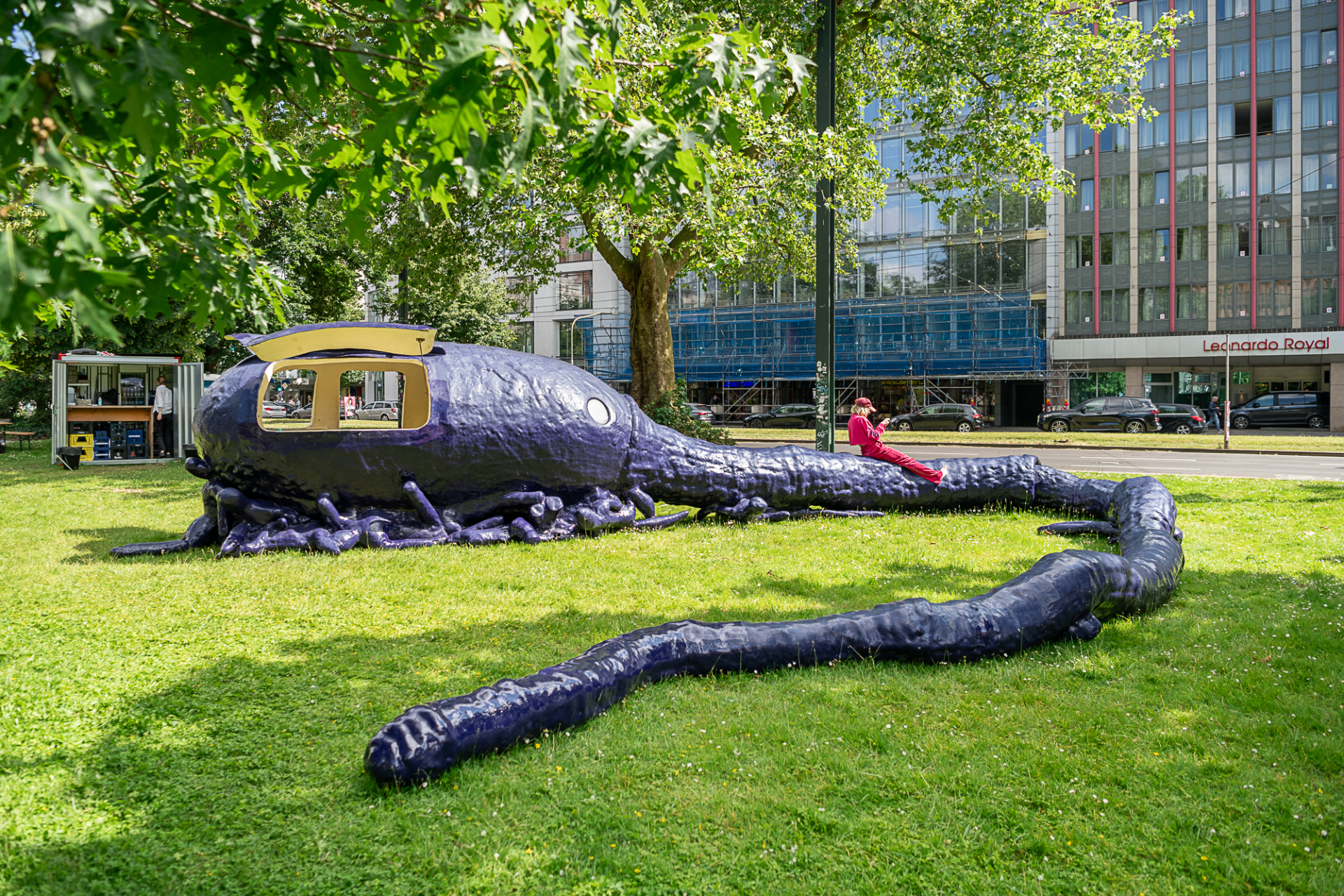
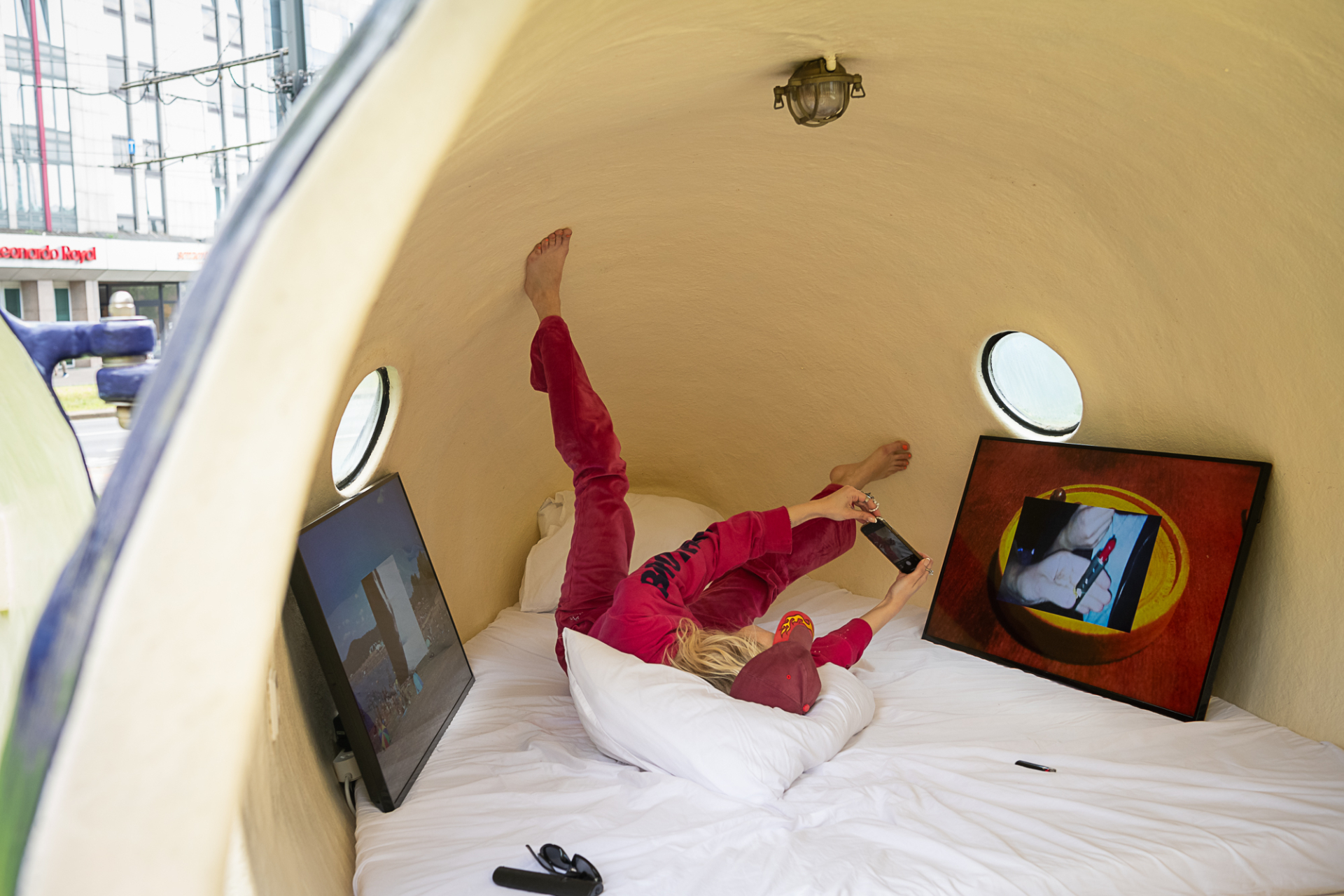
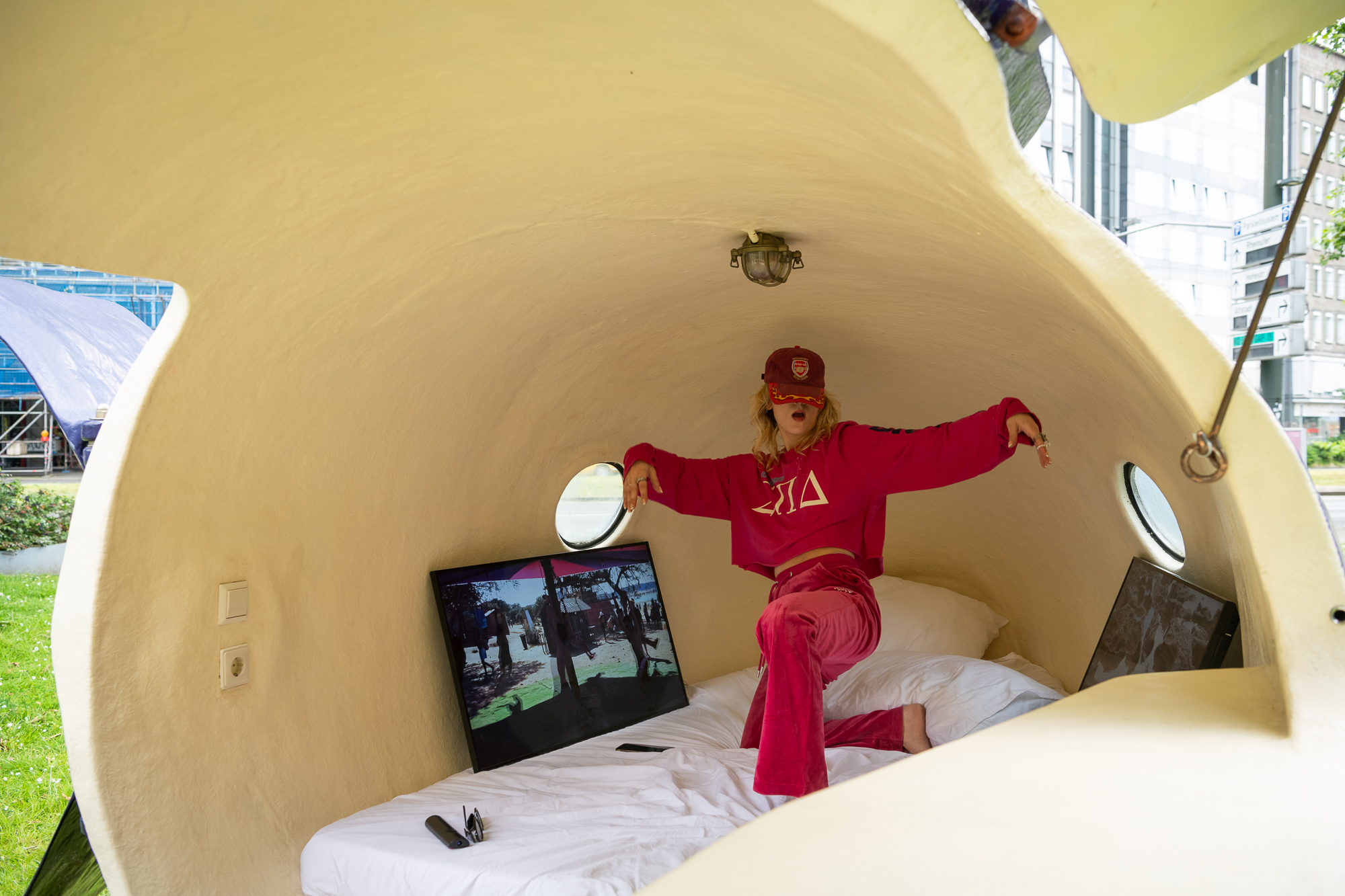
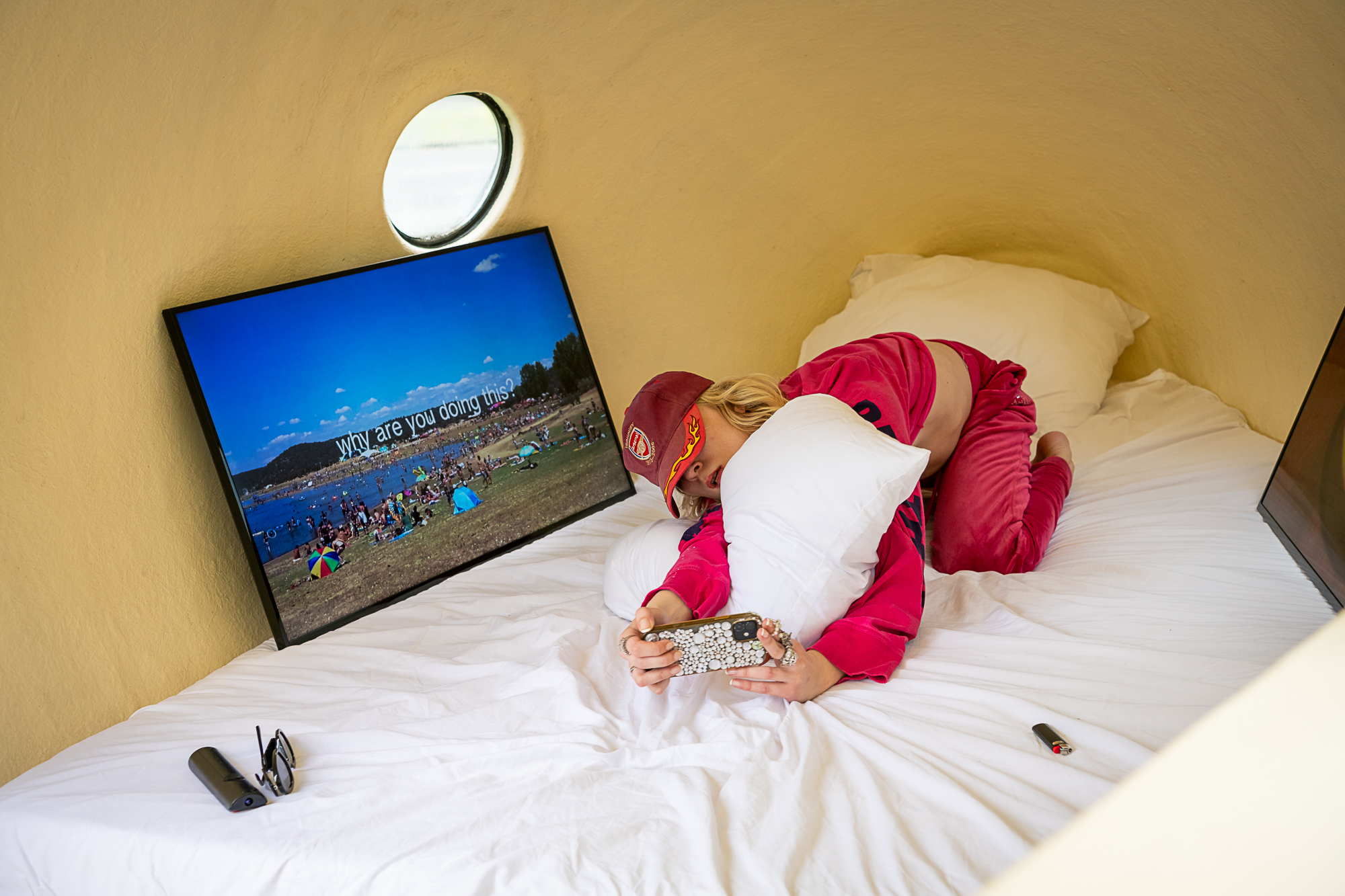

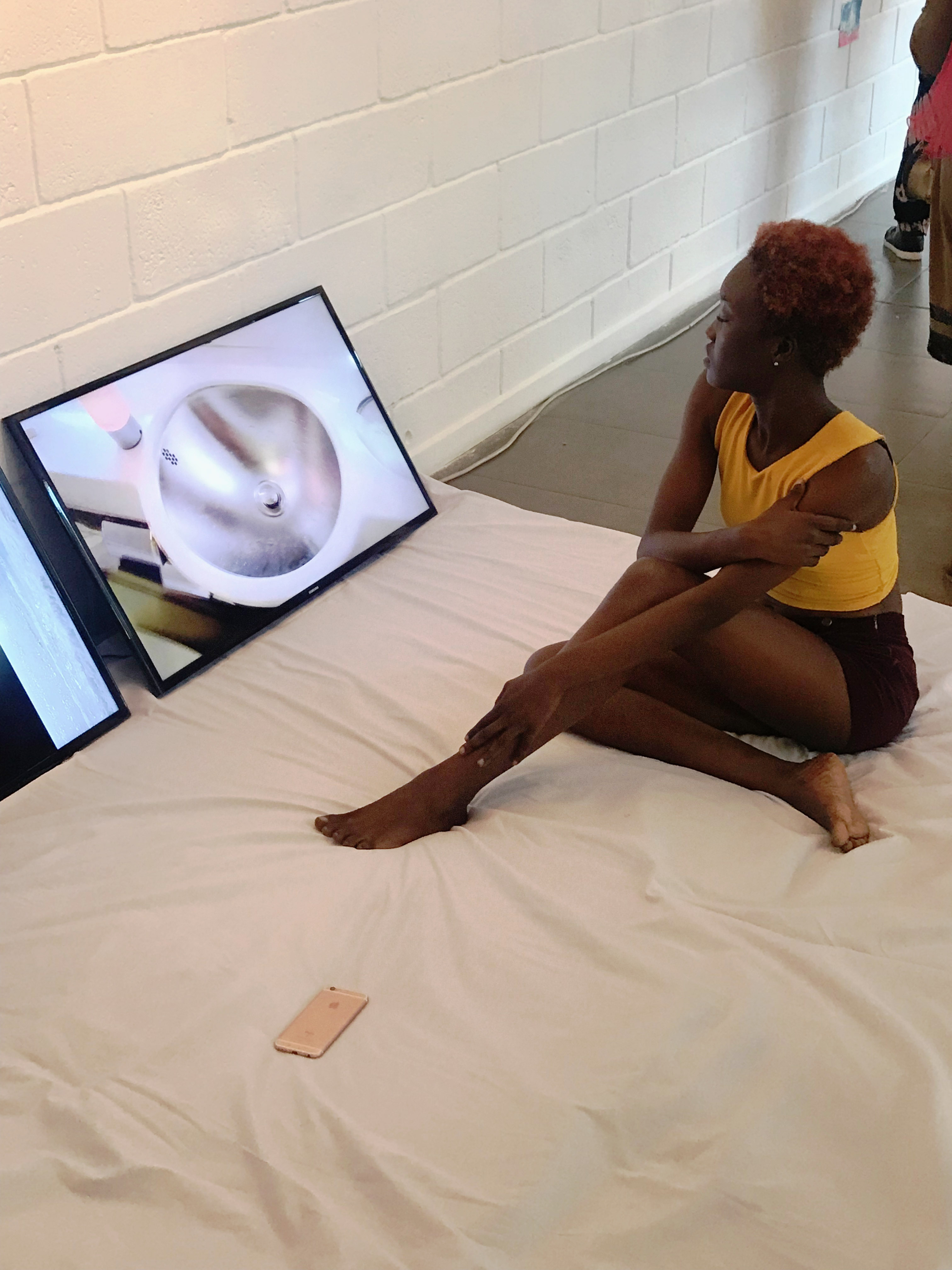
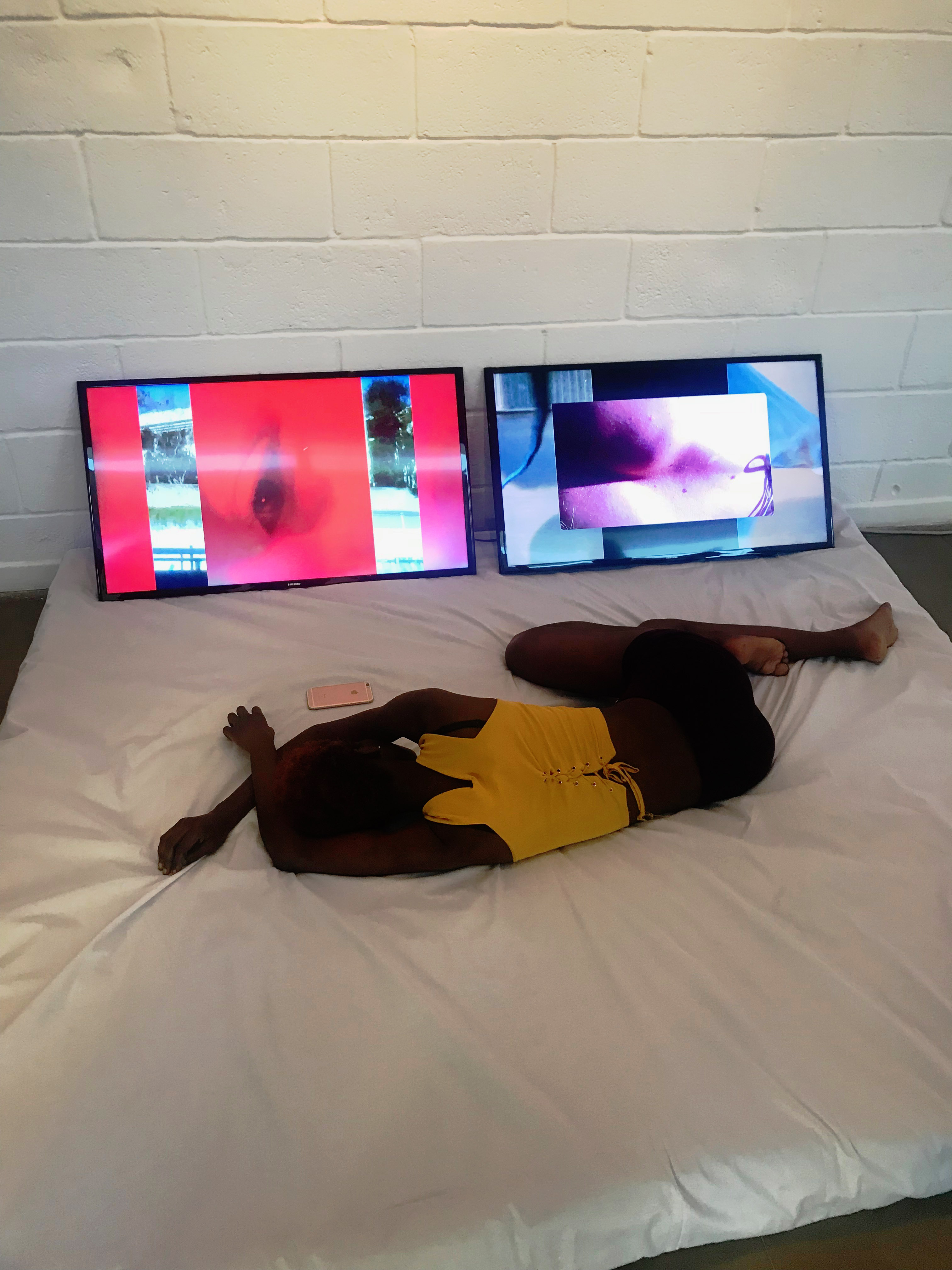
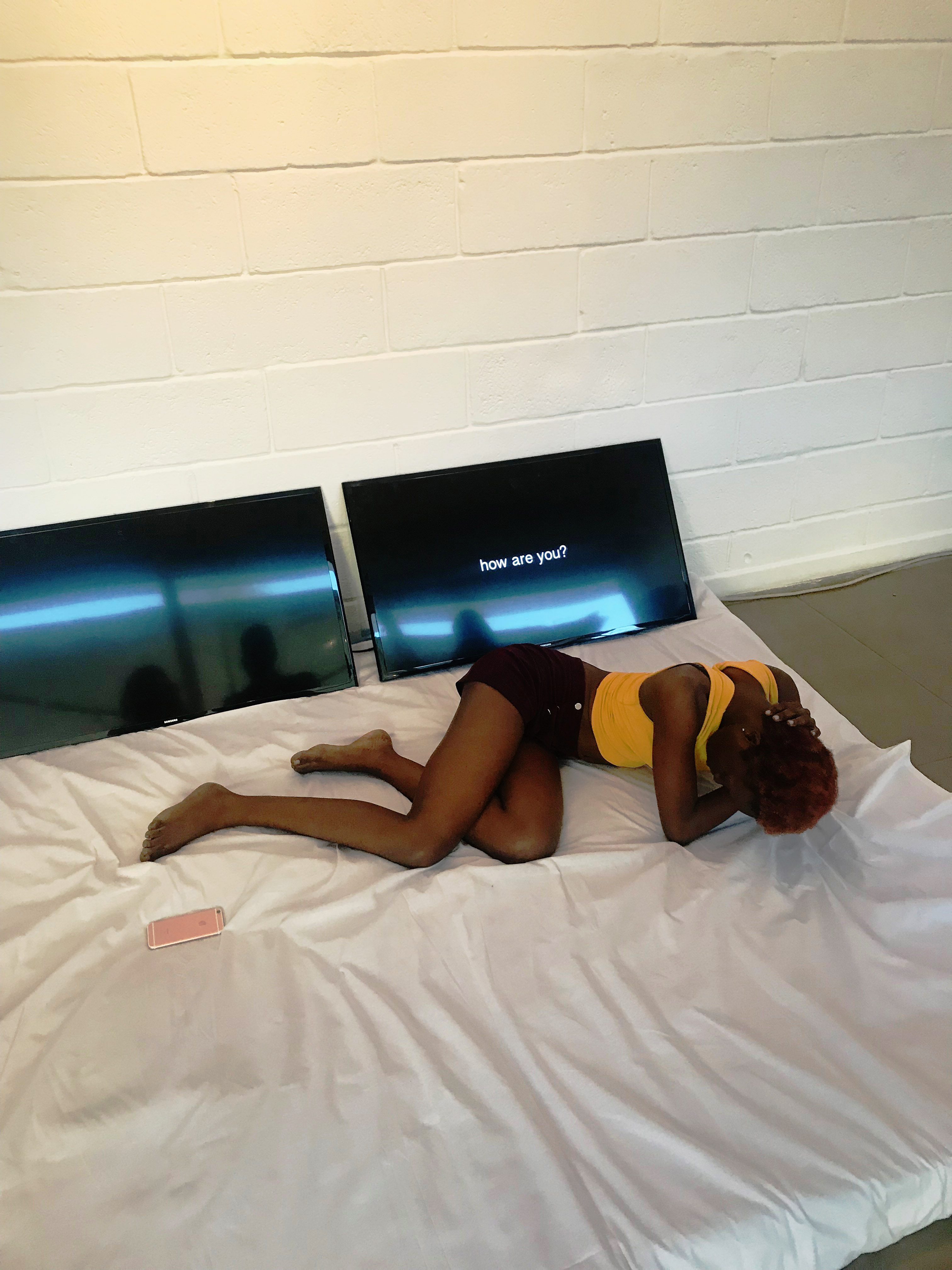
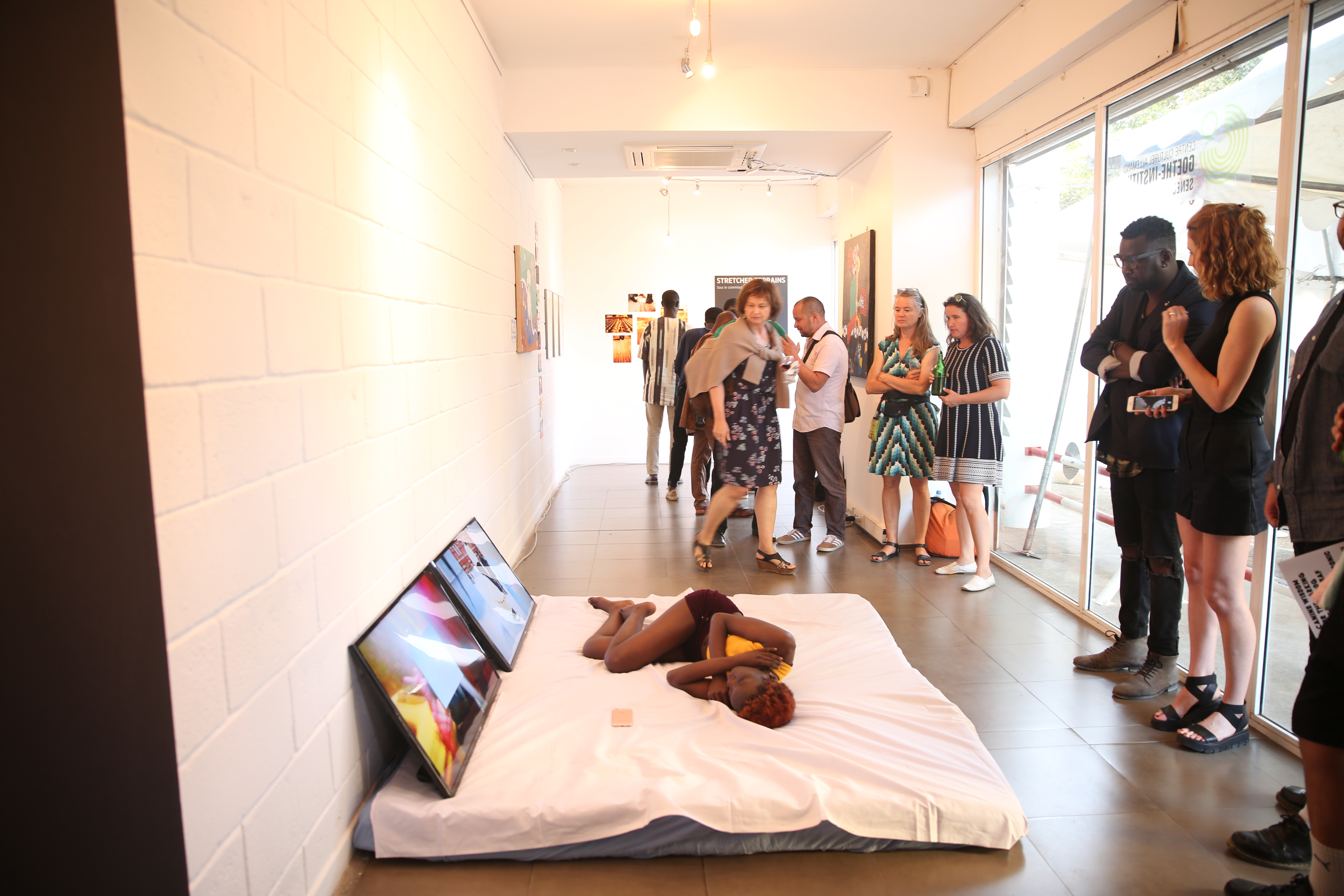
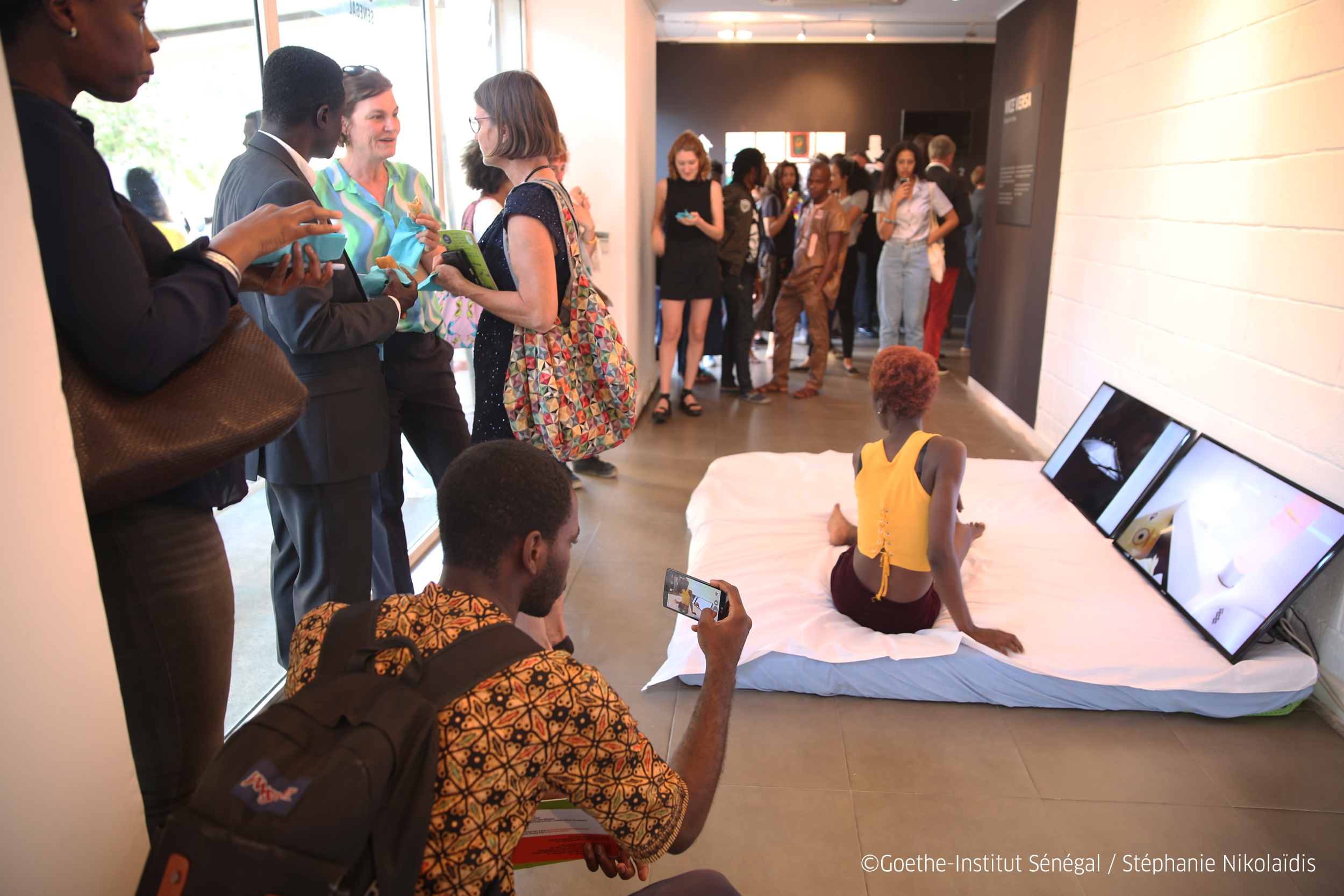
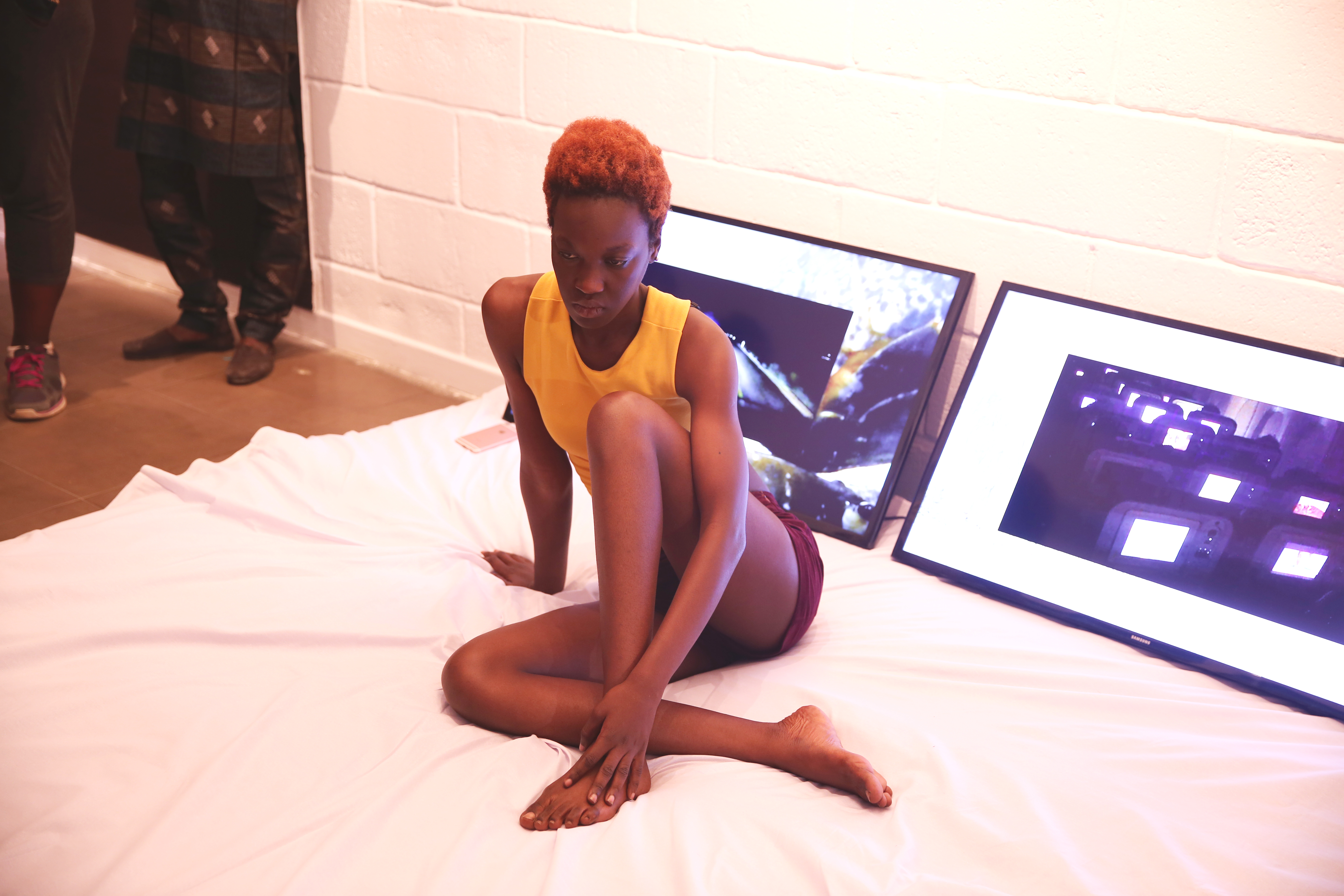
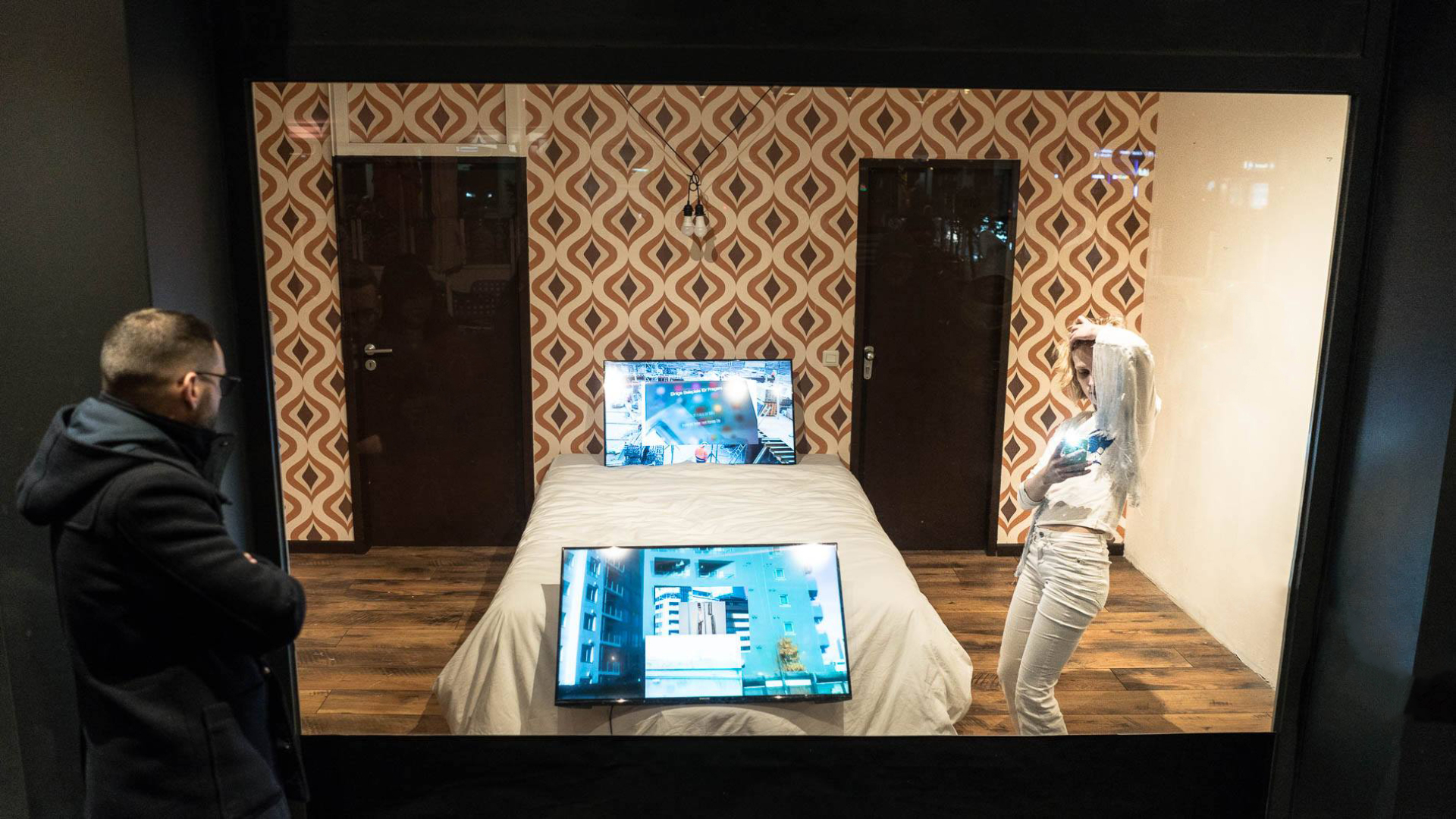
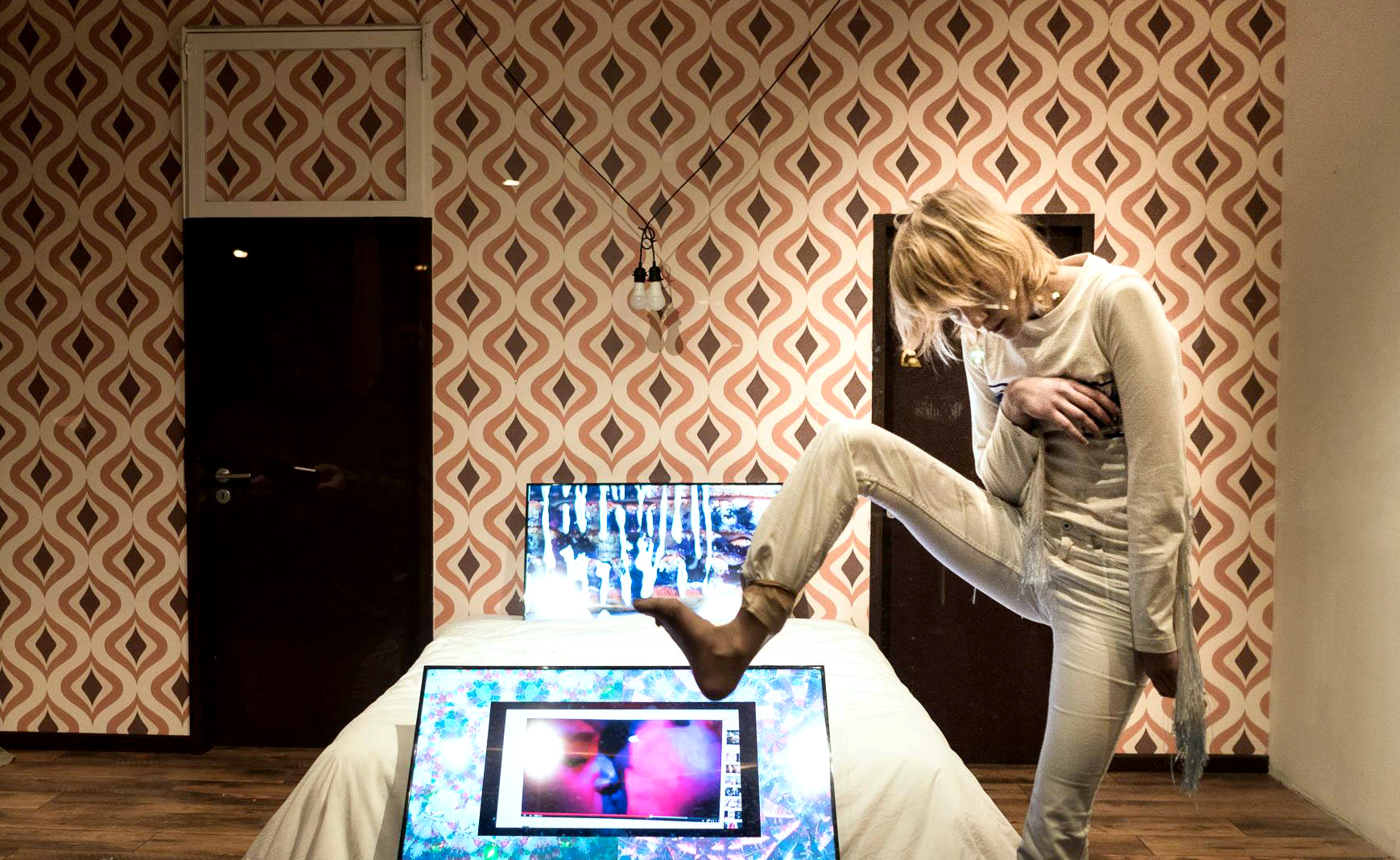
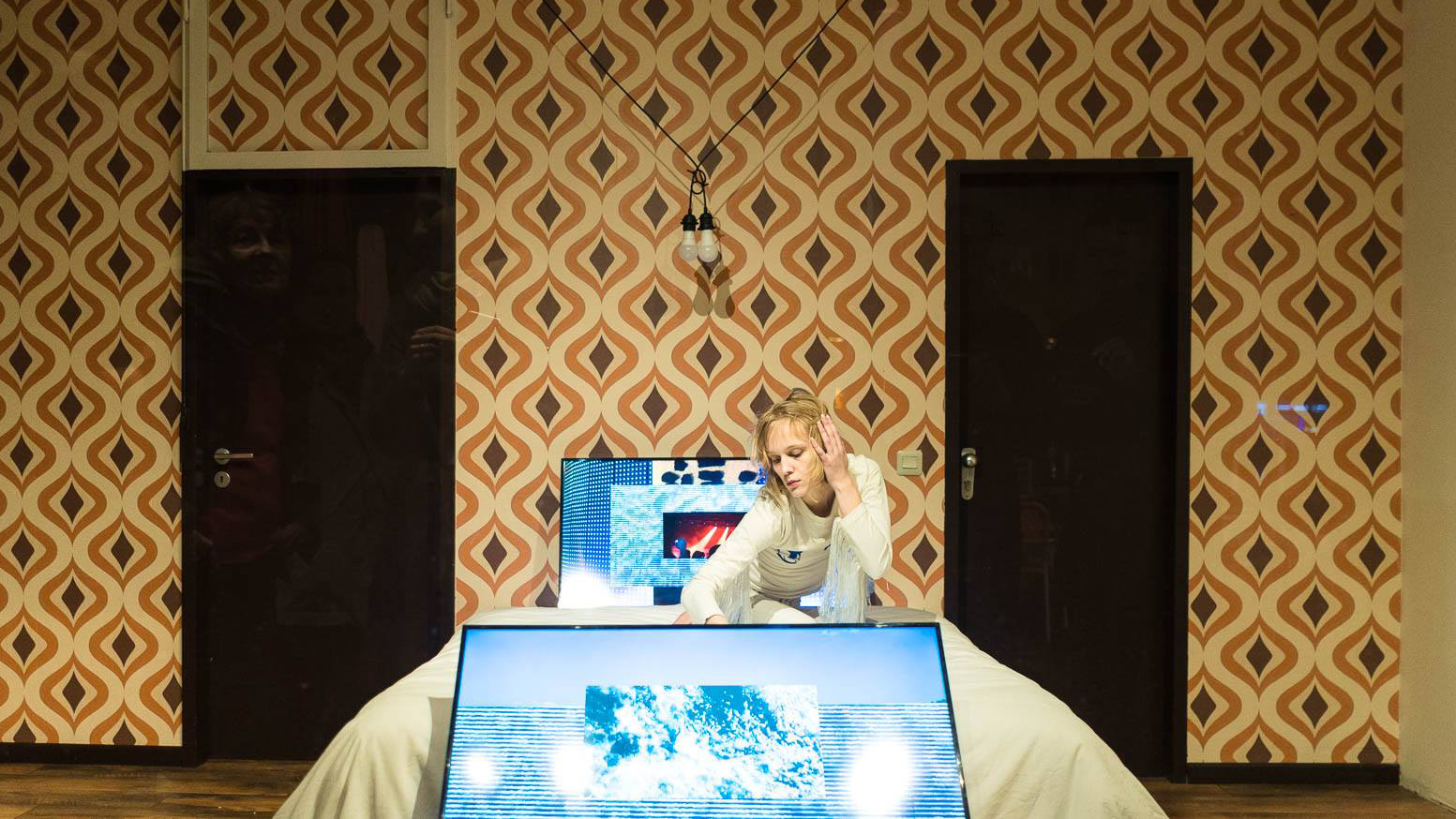
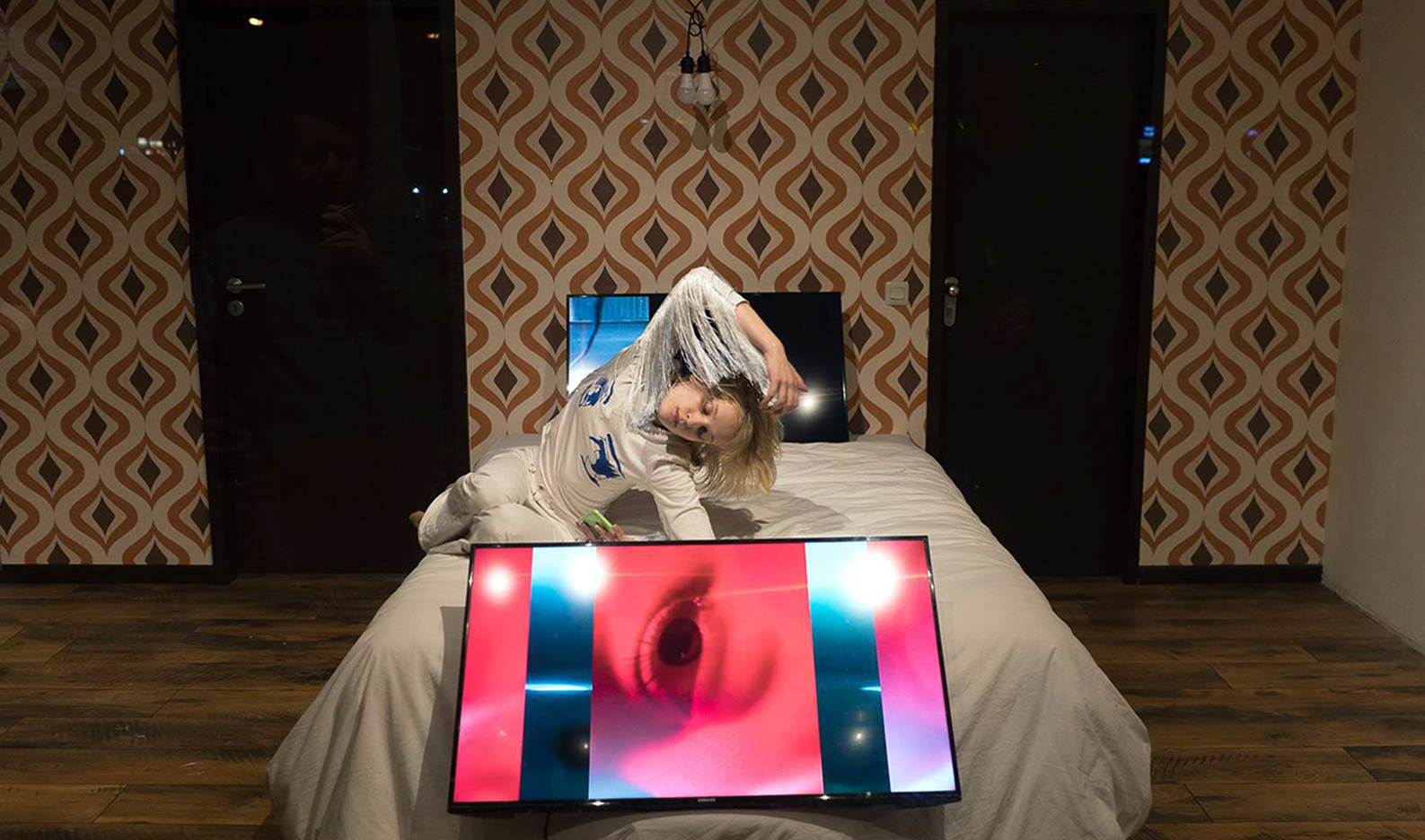
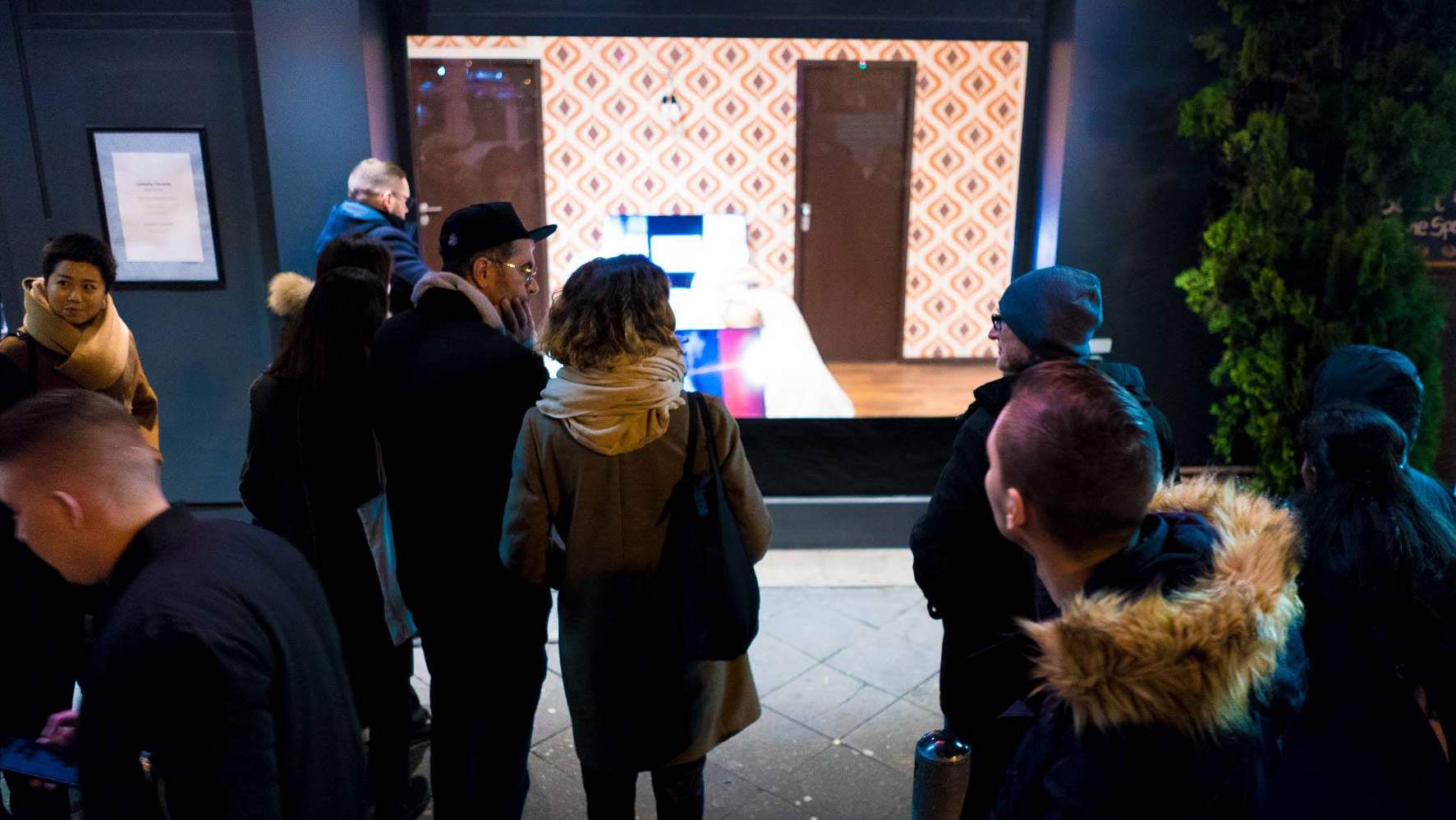
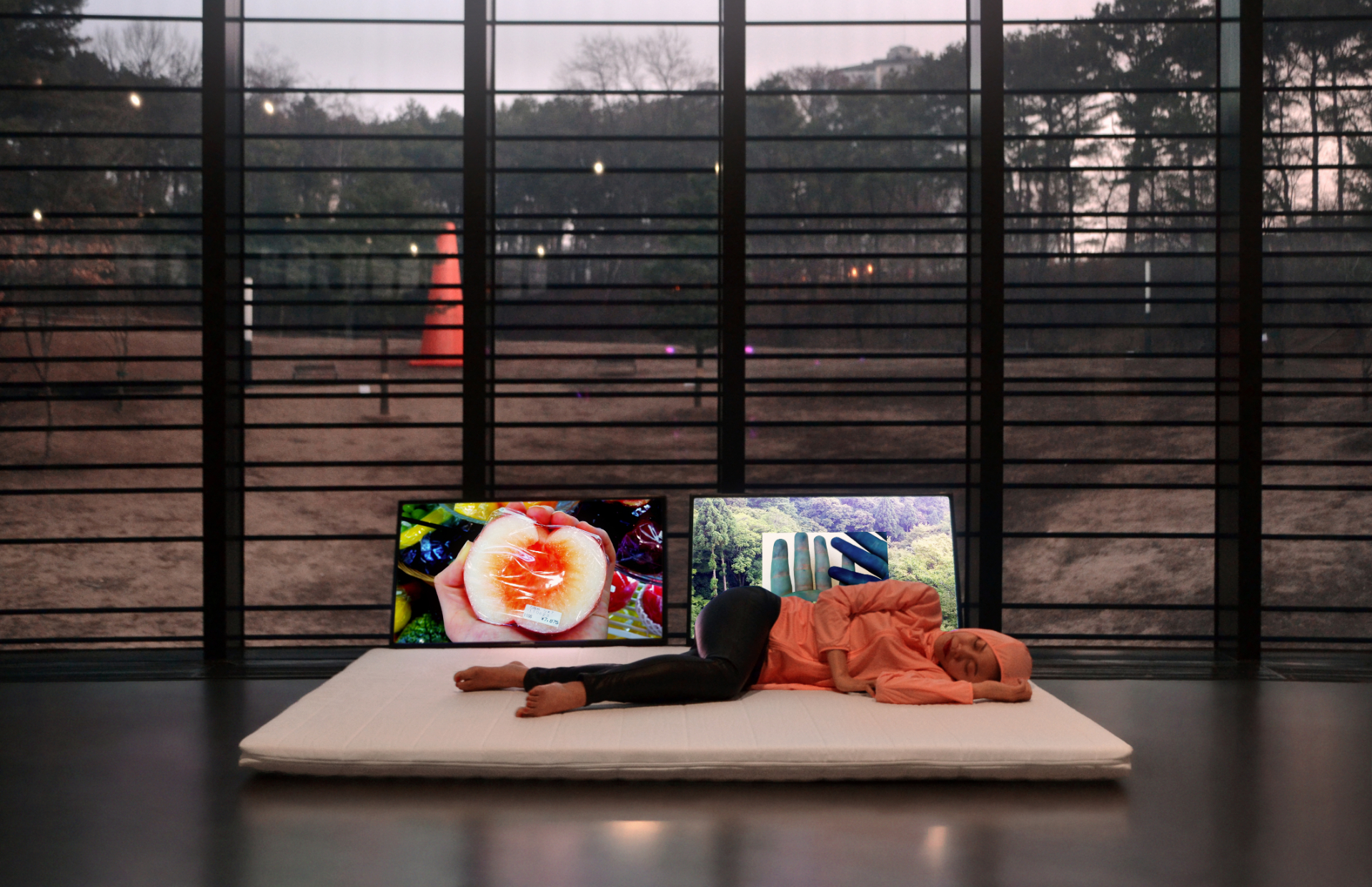
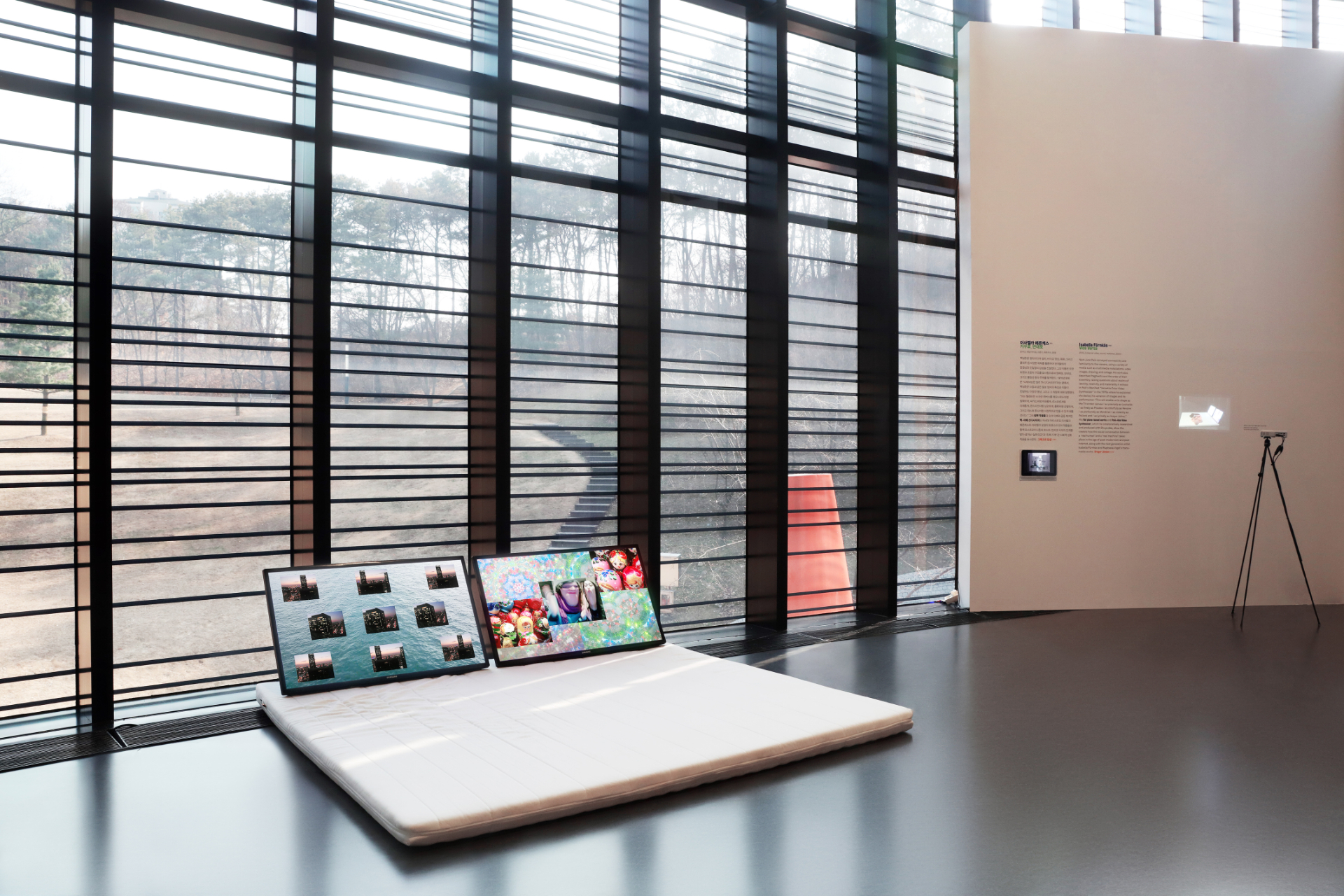

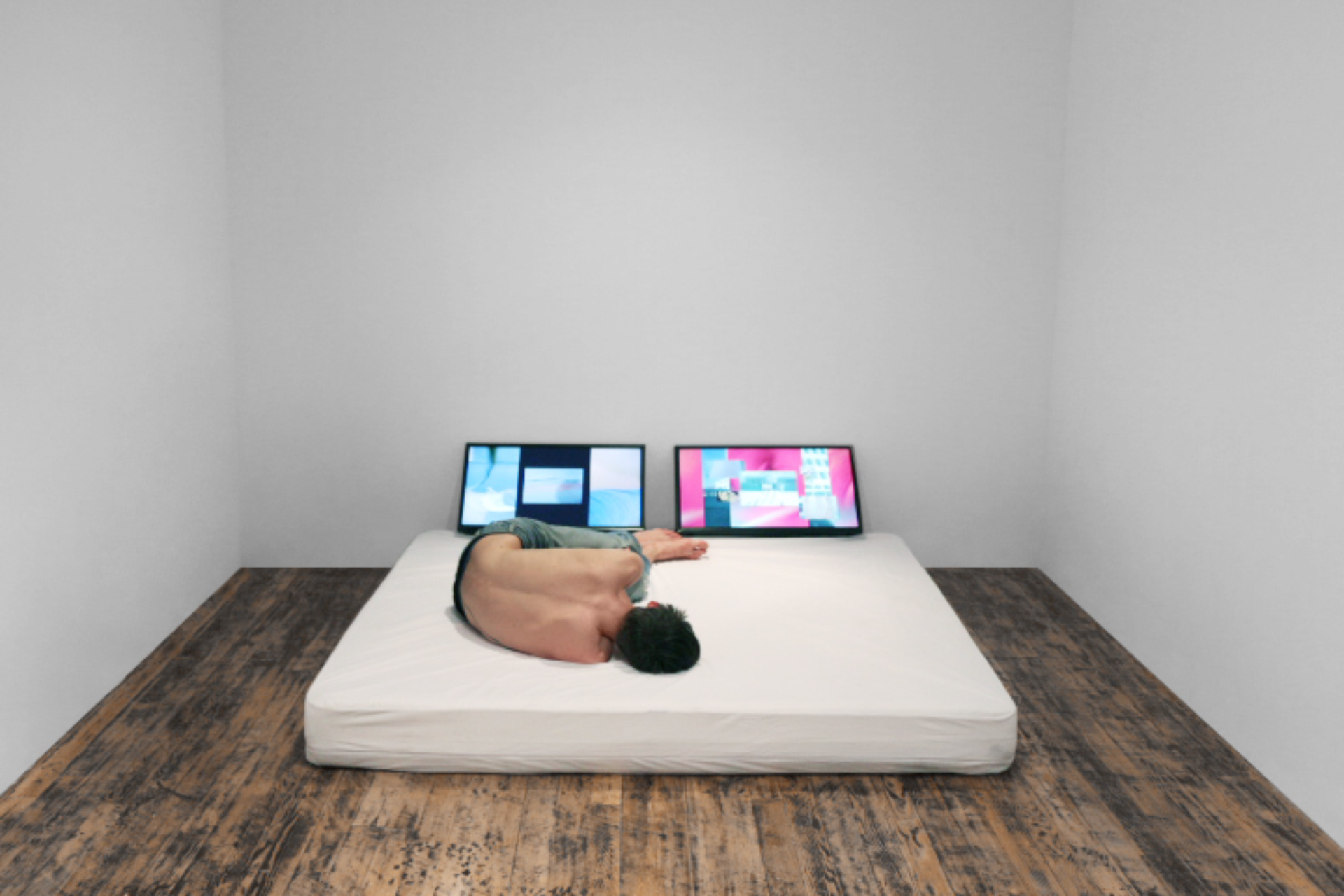
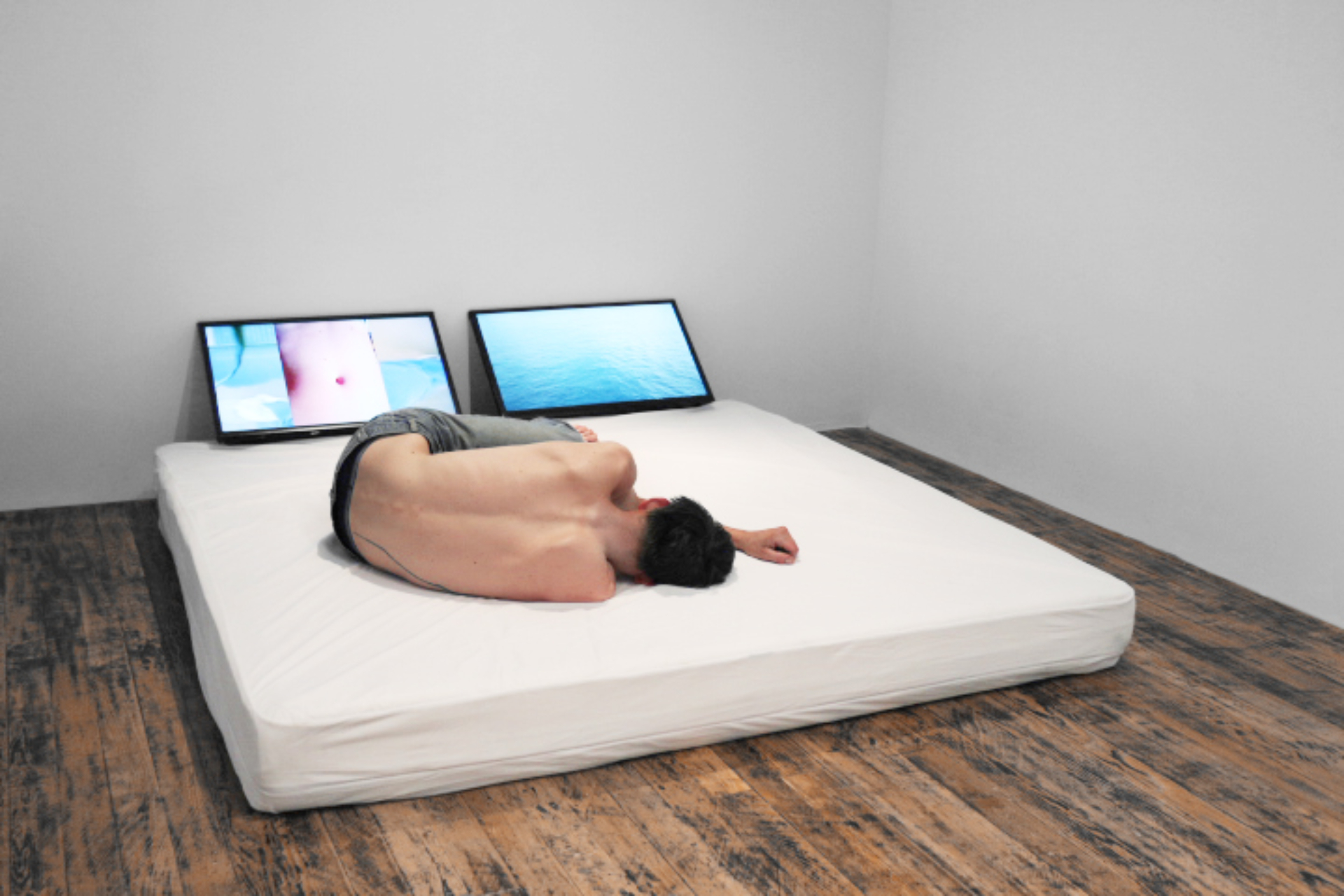
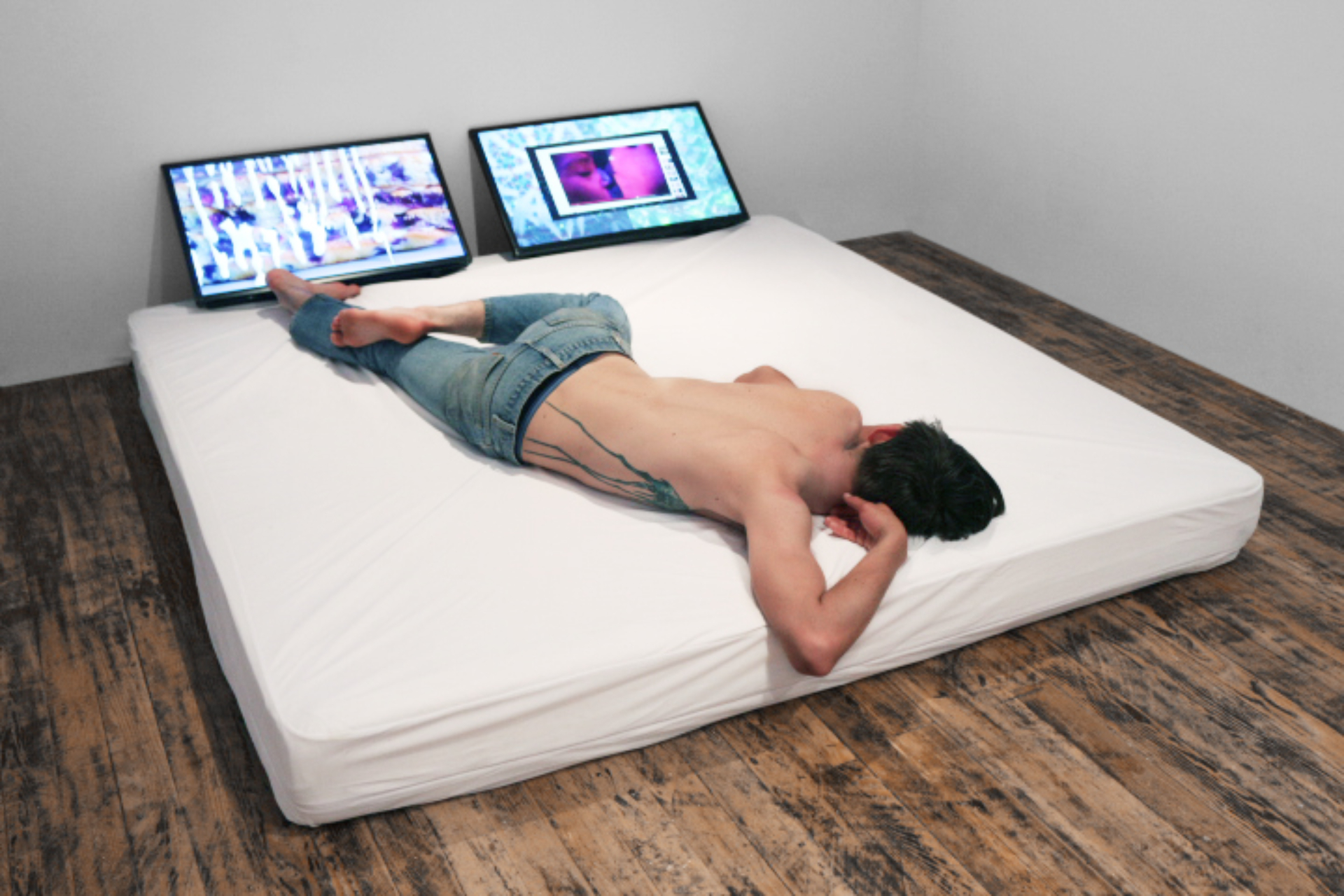
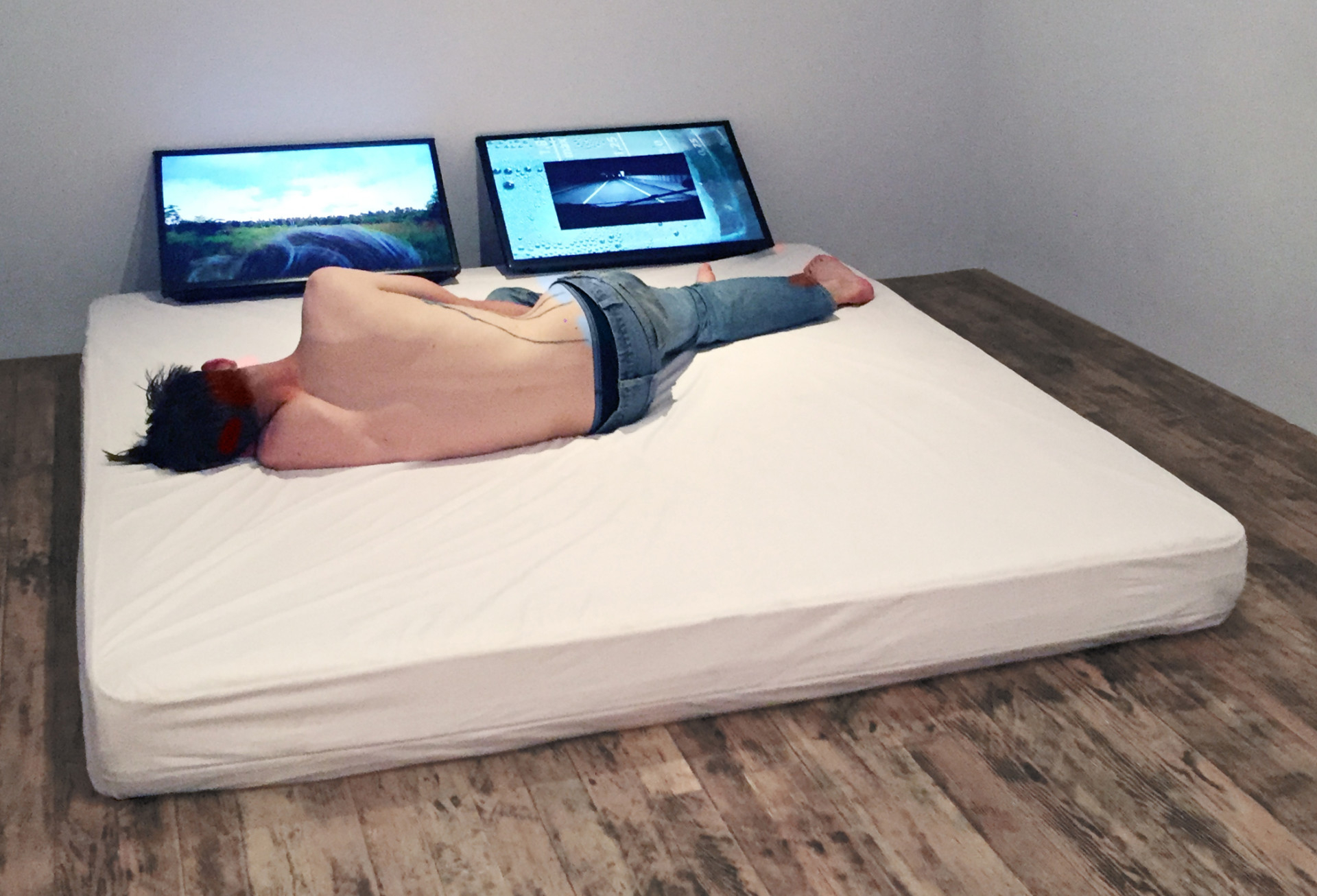
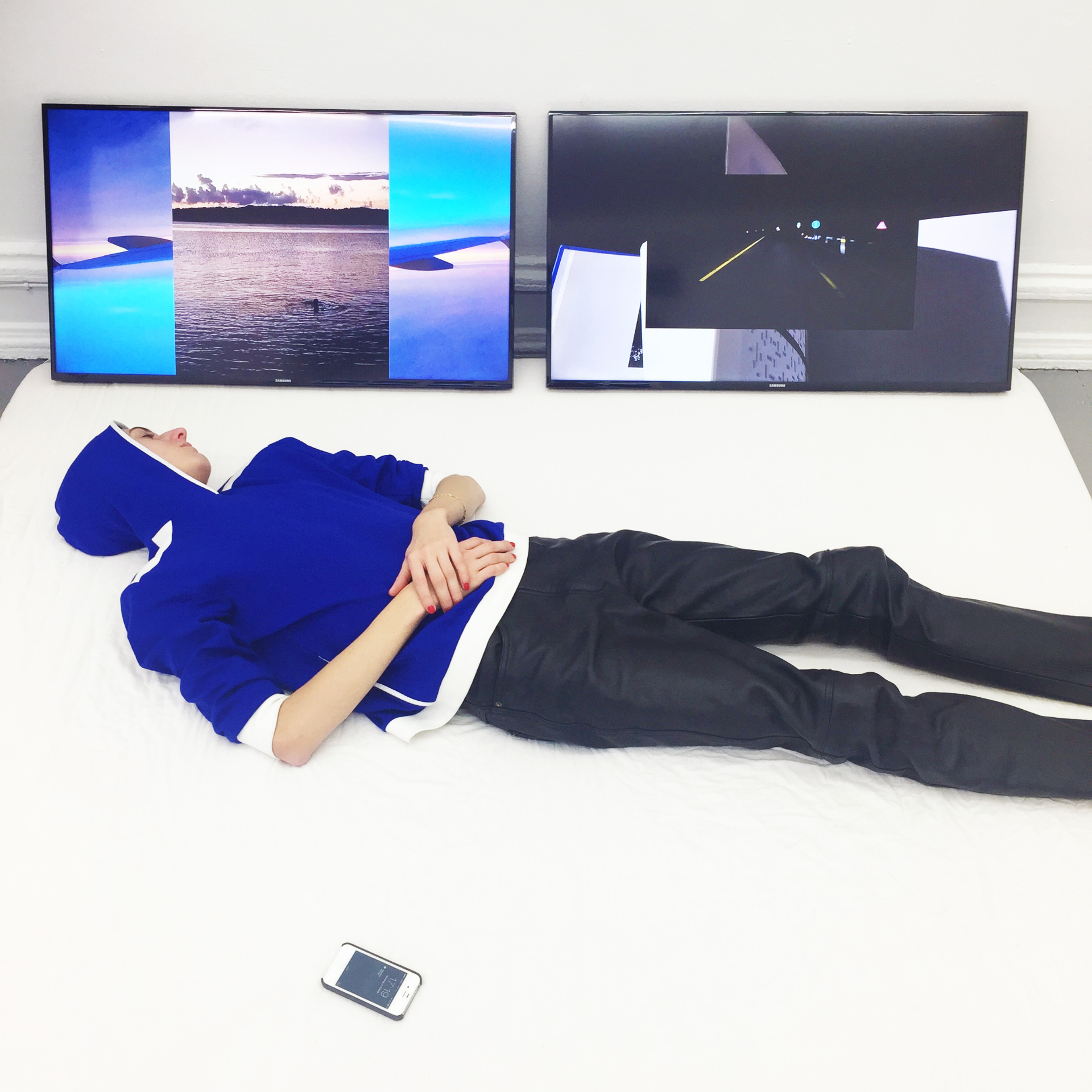
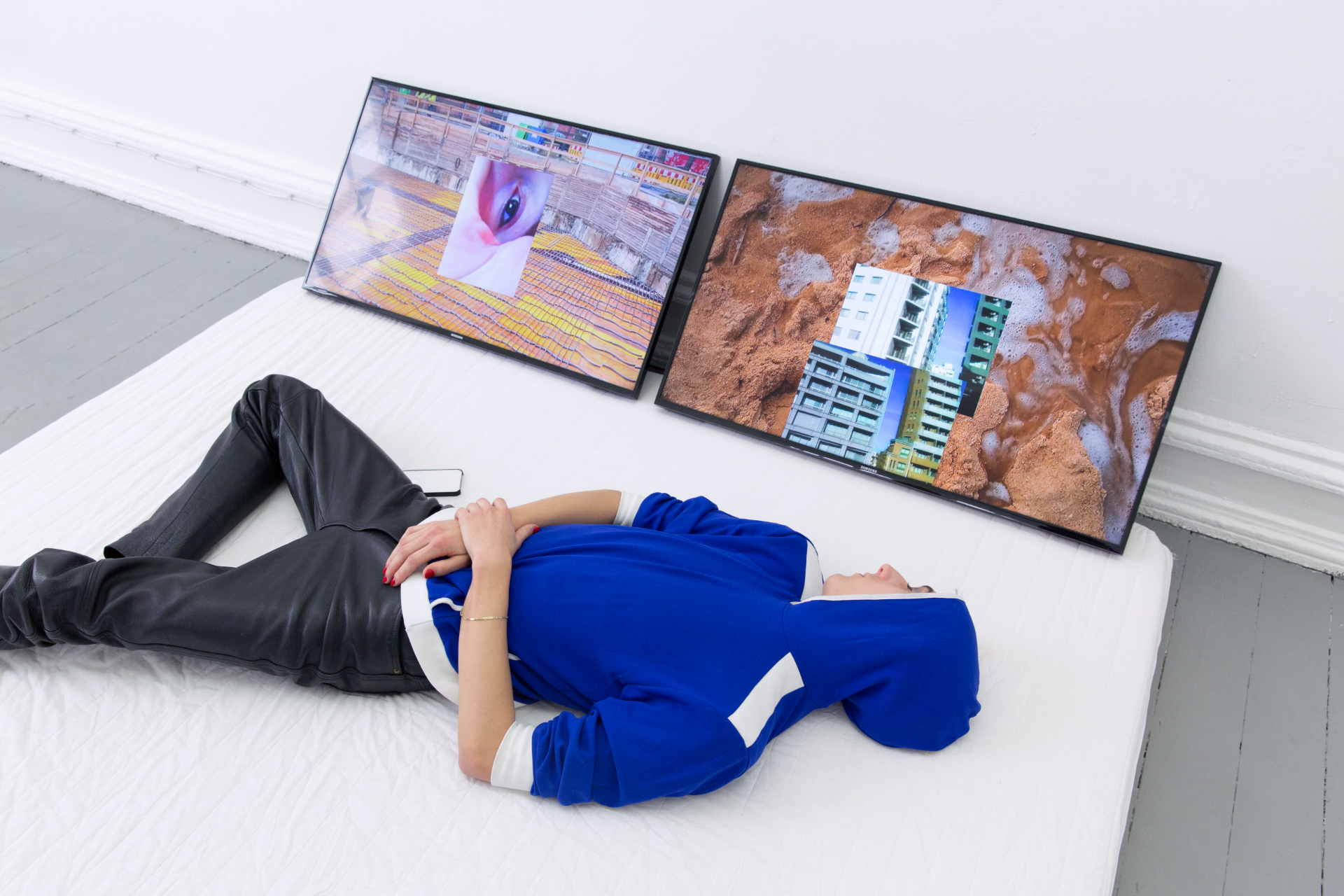
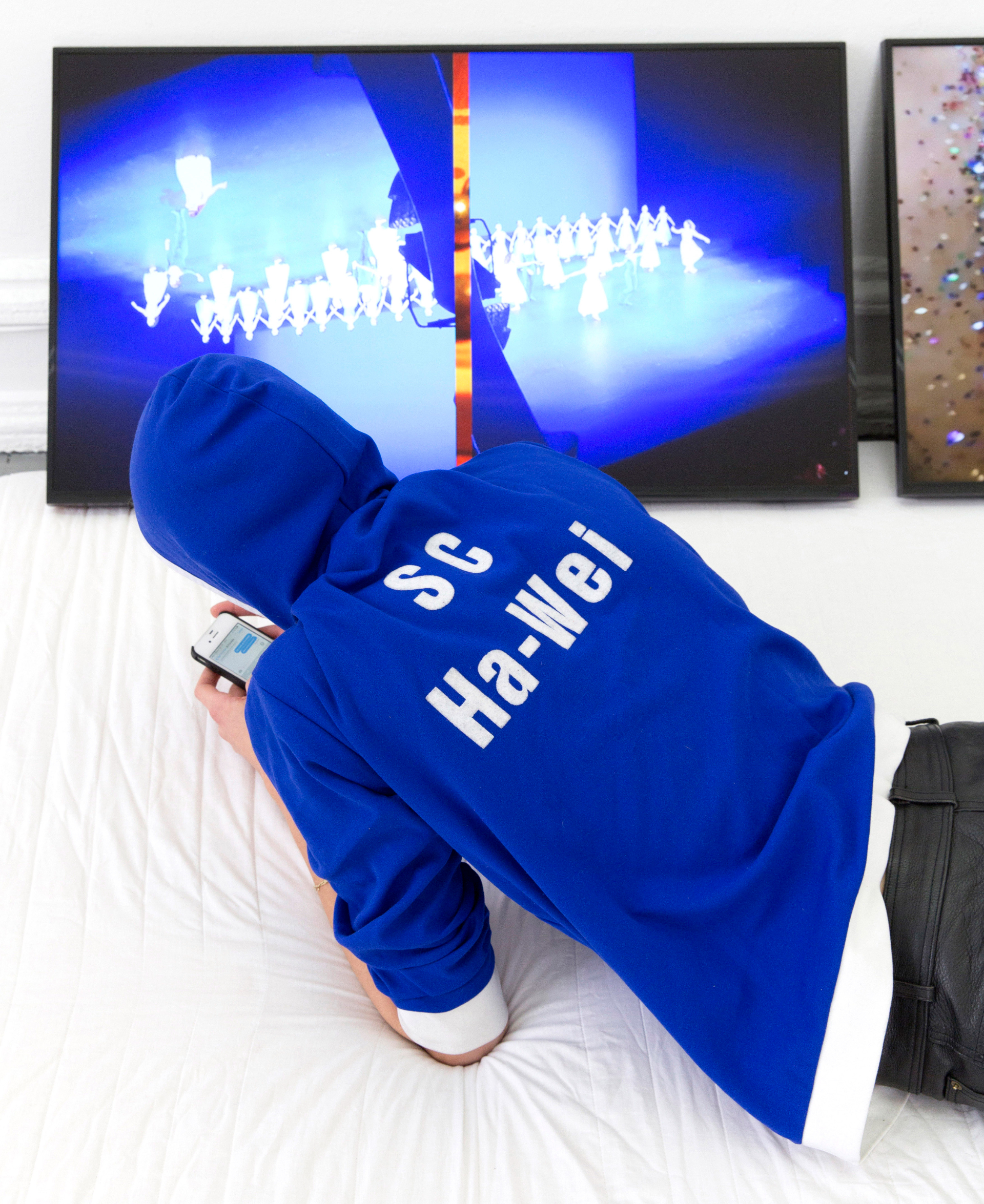
Vice Versa
Two flat screens are placed obliquely on a white mattress, like cushions on a bed. On them, agitated scenes are shown while the soft voices of a woman and a man can be heard. A performer stands motionless in front of the screens, which display fragmented images. The work raises questions about the individual’s state of mind in a hyper-connected world and, more broadly, addresses issues of gender and socio-cultural spaces.
Isabella Fürnkäs (*1988 in Tokyo) is the recipient of the "Förderpreis des Landes NRW" for media arts and a fellow of the "Cité Internationale des Arts Paris." She studied at the Düsseldorf Art Academy with Andreas Gursky, Keren Cytter, and Johannes Paul Raether, as well as in Hito Steyerl's class at the Berlin University of the Arts. The French-German artist works in the fields of visual art, video art, drawing, and installation. She combines her installations with performances and sculptures. Her investigations into the perception of the collective and the individual question the construction of our identity illusions through the various temporalities of universal spaces.
- Text by Philip Küppers
Two TV monitors are obliquely stationed on a white mattress, like pillows on a bed. The viewers can see fragments of images passing through the monitor and hear the sound of a woman conversing in a low voice, mainly asking about her counterpart’s mental state or bringing up gender-specific topics. The images, projected along with dialogues such as “hi,” “how are you,” or “I can’t see,” do not appear to be relevant. An androgynous-looking figure, appearing to be asleep on the bed, exhibits the ‘powerful sense of solitude’ nestled within an individual living in our own time, back turned toward the TV monitor. The artist focuses on reflecting on the fragmented order of time in our era, and narrating this topic in a language that exists somewhere in between compressed expressions and the description of a fragile figure. The viewers are offered an opportunity to ponder on the various possibilities that are brought forth through familiarity and new concepts about communities.
- Text by Hyun Jeung Kim
In the middle of the floor of a big exhibition hall, full of people hungry for art sincerities, a white mattress is placed – the ultimate privacy in the midst of a social pandemonium. On the mattress, a young, thin body lounges. Perhaps sleeping, or dozing, or dreaming – even possibly doped. Neither the slovenly-cool clothes, nor the physical characteristics of this body reveal to us its gender or social class. Naked, untidy feet – the casual, grubby style of teenager pedicure. The body devoid of identifications; just a young body... tired, overstrained, surrendered, ironically writing in white, on a dark blue jacket, “Ha-Wei”. […] This over-described art work, Vice Versa, opens up a realm of fundamental generalizations to us, and it may seem odd that such a piece belongs to the very young artist Isabella Fürnkäs. To reference such global issues, and observe events so remotely, it is necessary to have a certain degree of detachment (which comes to a person only over time), and it also needs a long and certainly bitterly-tasted experience (where the trivialities of life are already left behind, and all phenomena begin to be seen, more or less, in their natural light). How can a young artist succeed in showing us all this?
-Text excerpt by Gia Edzgveradze
Vice Versa, 2015-2024
Two-channel video installation, mattress, two 40“ flatscreens, videos 22min each, color/sound, loop, dialogue spoken by Juan Antonio Olivares and Ewouyne Waller, durational performance on the mattress, length variable screening of the video documentation during the exhibition period
Performance with Marlene Kollender, Oumy Ndiaye, Jordan Milner, Marlene Kollender, Minsun Choi, Jordan Milner and Lukas von der Gracht
Exhibitions
Markus Ambach Projekte, Düsseldorf (2024), K21 Kunstsammlung NRW, Düsseldorf (2021), Goethe Institut, Dakar (2018), Antichambre, Düsseldorf (2017), Nam June Paik Art Center, Seoul (2016), CSA Space, Vancouver (2015), Kunstakademie Düsseldorf (2015)